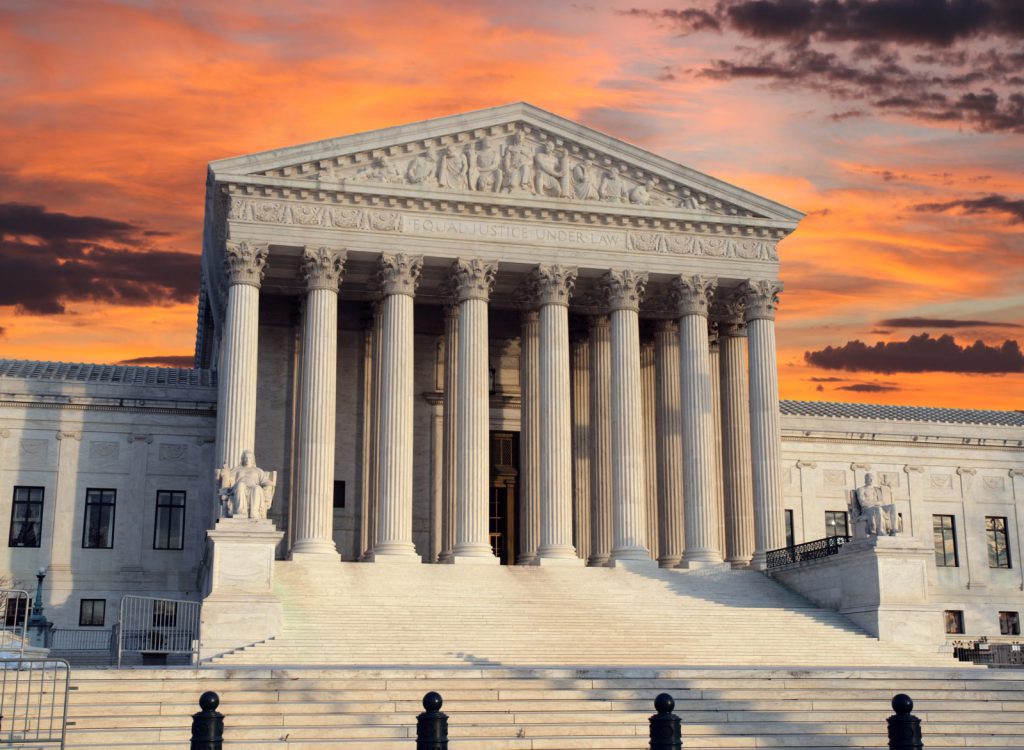
Published May 3, 2017
George Weigel's weekly column The Catholic Difference
Did you find the Gorsuch hearings in the Senate Judiciary Committee a depressing exercise in political theater? Are you tired of the members of the “world’s greatest deliberative body” playing “Gotcha!” games that would embarrass a well-trained high school debate team? Have you had it with a mainstream media that doesn’t hold senators accountable for gross ignorance and bias, and a social media universe that’s constantly in hysterics?
If so, I’ve got some bad news for you: The melodrama over the nomination of Neil Gorsuch to the U.S. Supreme Court was just the warm-up. Things will be immeasurably worse the next time. Why? Because Gorsuch was a trade-across that maintained the Court’s philosophical balance after the death of Justice Antonin Scalia. Assuming the next justice to retire or die is Justice Ruth Bader Ginsburg (who’s 84), Justice Anthony Kennedy (who will be 81 in July), or Justice Stephen Breyer (who will be 79 in August), the nominee to follow will be replacing a justice fully committed to the abortion license defined by Roe vs. Wade in 1973 and reaffirmed by Casey vs. Planned Parenthood in 1992.
Which means, in a word, Armageddon: a battle of apocalyptic passions, unhinged from reason.
Disturbing as that forecast may be, Armageddon seems virtually inevitable after the Gorsuch hearings and the Senate floor debate on his nomination. For beneath the “Gotcha!” games played by the Senate minority, an implacable determination to preserve the abortion license, at all costs and in its present form, was obvious to those with eyes to see and ears to hear. And perhaps the most chilling formulation of that grim resolve came from Senator Dianne Feinstein of California.
The Senate today is not replete with genius; it’s somewhat disconcerting to contrast today’s solons with a Senate that included, in 1850, Daniel Webster, Henry Clay, John C. Calhoun, Thomas Hart Benton, Sam Houston, Jefferson Davis, William H. Seward, Lewis Cass, Salmon P. Chase, and Stephen A. Douglas—men who, irrespective of their positions on issues, argued with keen intelligence anchored by deep learning. There are few such senators today; but Dianne Feinstein enjoys a reputation for seriousness and thoughtfulness that is, in my experience, deserved.
Until the subject turns to abortion. Then we get the following:
“Judge Gorsuch has not had occasion to rule directly on a case involving Roe. However, his writings do raise questions. Specifically, he wrote that he believes there are no exceptions to the principle that ‘the intentional taking of a human life by private persons is always wrong.’” And that principle, Senator Feinstein concluded, raised the specter of a situation where a woman’s “decisions about her health care will be determined by politicians and the government.”
It would be interesting to know if there are situations other than the termination of an unwanted pregnancy in which Senator Feinstein would recognize a right to the “intentional taking of a human life by private persons.” It would be even more interesting to know if, in formulating her fear as she did, Senator Feinstein was conceding that the unborn child is a “human life”—a life that, for a variety of reasons, does not deserve the protection of the laws? Which would then get the discussion down to what seems to be the bottom line: the senator’s claim that Roe vs. Wade gave a “woman … control over her own body.”
And there we arrive at the Armageddon-like character of what’s-coming-after-Neil-Gorsuch.
The day after the presidential inauguration, Washington saw a display of rage, vulgarity, and violence by over half a million demonstrators, the overwhelming majority of whom, I’m willing to bet, consider the empowerment of women inextricably linked to the abortion license defined by Roe. The false (and indeed bizarre) linkage between the abortion license and the dignity of women has served the interests and convenience of irresponsible and predatory men. It has led to a tragedy of breathtaking proportions—the deaths of 58 million innocents. It has warped our politics for two generations. Yet that linkage is what leads an otherwise intelligent senator like Dianne Feinstein to take issue with “the principle that ‘the intentional taking of a human life by private persons is always wrong.’”
Reason is another victim of Roe vs. Wade. The Gorsuch hearings underscored that. Which does not bode well for the future.
George Weigel is Distinguished Senior Fellow of Washington, D.C.’s Ethics and Public Policy Center, where he holds the William E. Simon Chair in Catholic Studies.











